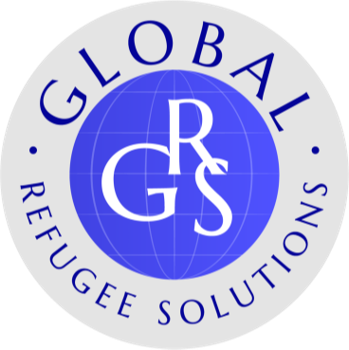Uganda
Learn more about the region below
Overview
Uganda, a landlocked country in East Africa, is home to over 1.7 million refugees, the highest in Africa. It has a progressive refugee policy that provides land, education, and work rights. Despite this, Uganda faces significant challenges due to poverty, rapid population growth, and strained infrastructure, especially in rural areas and refugee-hosting communities.
Country Facts
Population
- Estimated 2025 Population: 51.38 million
- High population growth rate of 3% annually
- Youthful population: 44% are under the age of 14
- Projected to double by 2044, reaching 85.8 million
- Population density: 257 people per square kilometer
GRS Response
- GRS began working in Uganda in 2018.
- Have been assisting through our education, basic needs, and social support programs.
- Our work has focused on empowering refugee and host communities, especially in Kampala and the northern districts.
People in Need
- Over 87% of the population lives on less than $5.50/day
- The majority live in rural areas and rely on agriculture
- Limited access to clean water, healthcare, and education
- Poor infrastructure, especially in transportation and communication
- Highly vulnerable to climate change impacts
Refugee Population and Origins
- Uganda hosts over 1.8 million refugees, the largest refugee population in Africa
- Refugees mainly come from:
- South Sudan (54%)
- Democratic Republic of the Congo (32%)
- Sudan – Over 69,000 new arrivals since conflict in 2023
- In 2023 alone, 117,182 new refugees arrived from Sudan, South Sudan, DRC, Eritrea, Ethiopia and other countries
- Refugees are settled in 12 main districts and urban centers
- 8% of refugees reside in Kampala
Strain on Resources
- Strain on health, water and sanitation, education, and livelihood infrastructure
- Gaps in humanitarian assistance funding
- Increased tensions between refugees and host communities in urban and secondary settlement areas
Uganda’s Refugee Policy and Response
- Maintains an open-door policy for refugees
- Allows refugees to live in settlements or urban areas
- Offers access to land, work, education, and healthcare
- New policy requires Sudanese refugees to stay in camps
- Globally recognized model for refugee hosting and integration
- Uses a comprehensive framework led by the Office of the Prime Minister, with UNHCR, NGOs, and donor support
- Aligned with the Global Compact on Refugees
- Promotes integration into national development plans
Human Development & Child Welfare
- Life expectancy: 63 years
- Under-five mortality rate: 64 per 1,000 live births (2016)
- Skilled birth attendance: 74%, up from 39% in 2000
- Neonatal mortality: 27 per 1,000 births, unchanged since 2006
- Stunting among under-5s: Reduced from 33% (2011) to 29% (2016), though total numbers remain high due to population growth
- Teenage pregnancy: 25% of girls aged 15–19 have begun childbearing; worsened during COVID-19 school closures
- Birth registration: 57% of children under 5 are registered; only 24% have birth certificates
Education
- Early childhood education (ages 3–5): 40% attend, up from 20% in 2011
- Primary school attendance (ages 6–12): Over 80%
- Secondary school attendance: Over 25%
- Primary school attendance rate:
- Boys: 83.3%
- Girls: 84.1%
- Rural: 83.2%
- Urban: 86.1%
Health & Nutrition
- 1.4 million people living with HIV, including 98,000 children
- Access to safe water: 78%, up from 57% in 2000
- 56% of children live in multidimensional poverty
- High levels of child undernutrition, linked to poverty, poor healthcare access, and food insecurity
Gender-Based Violence & Maternal Health
- Gender-based violence remains widespread, particularly affecting adolescent girls
- High maternal and newborn mortality, worsened by teenage pregnancy and poor quality of care
Crisis
Uganda has become a vital safe haven for refugees escaping regional conflicts, especially from South Sudan, the Democratic Republic of the Congo, and Sudan. Its open-door refugee policy has earned international praise, allowing displaced people to access land, public services, and basic rights. However, this generosity puts immense pressure on Uganda’s already limited resources.
The country’s humanitarian infrastructure is overstretched, with education, healthcare, and clean water access falling short of demand. Natural disasters and climate-related challenges, including floods and droughts, further intensify the difficulties for both refugees and host communities. Funding gaps hinder humanitarian efforts, making international and local support critical for sustaining Uganda’s role as a leading refugee-hosting country.
Frequently Asked Questions (FAQs)
Why does Uganda host so many refugees?
Uganda’s geographic location makes it a central destination for people fleeing violence in neighboring countries like South Sudan, DRC, and Sudan. Its progressive policies make it one of the most welcoming refugee-hosting countries in the world.
What challenges do refugees face in Uganda?
Refugees face challenges such as overcrowded settlements, limited access to clean water, healthcare, education, and employment opportunities. Strains on local infrastructure and services also impact host communities.
How is the Ugandan government responding to the refugee crisis?
The government, with support from the UN and NGOs, has developed a comprehensive refugee response that integrates refugees into national services and encourages self-reliance. However, funding gaps persist, and needs continue to grow.
What role does GRS play in Uganda?
GRS supports refugee and host communities in Uganda by providing education programs, basic needs support, youth empowerment initiatives, and local partnerships to improve livelihoods and long-term resilience.
How can I help or donate to GRS’s work in Uganda?
You can make a difference by donating through our website. Your support helps fund education, emergency assistance, and long-term development programs. Visit our Donate Page to give today and help uplift lives in Uganda and beyond.
